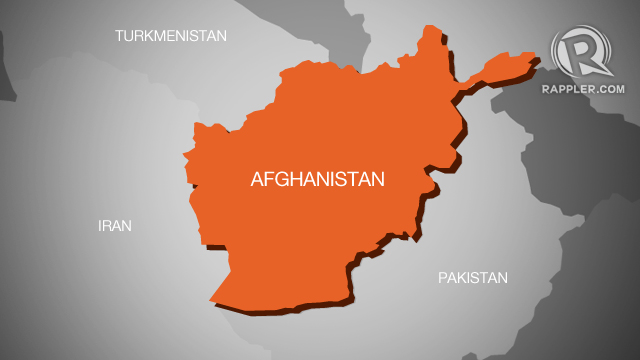SUMMARY
This is AI generated summarization, which may have errors. For context, always refer to the full article.

KABUL, Afghanistan – Afghanistan’s presidential election is set for a second-round vote, preliminary results showed on April 26, Saturday, as former foreign minister Abdullah Abdullah and ex-World Bank economist Ashraf Ghani both failed to secure a decisive victory.
The head-to-head election will choose a successor to outgoing President Hamid Karzai in Afghanistan’s first democratic transfer of power.
Whoever wins will have to oversee the fight against a resilient Taliban insurgency as 51,000 US-led troops depart this year, as well as strengthen an economy that relies on declining aid money.
“Based on our results, it appears that the election goes to the second round,” Ahmad Yusuf Nuristani, head of the Independent Election Commission, told a press conference in Kabul.
Abdullah secured 44.9% of the April 5 vote, with his main rival Ghani on 31.5%, according to the preliminary results.
The 2009 election, when Karzai retained power, was marred by fraud in a chaotic process that shook confidence in the multinational effort to develop the country and also marked a sharp decline in relations with the United States.
The final official result is set to be announced on May 14 after a period for adjudication of hundreds of complaints over alleged fraud.
As no candidate gained more than 5%, a run-off between the two leading names is required under the Afghan constitution.
Eight men ran in the election, with polling day hailed a success by Afghan officials and foreign allies as the Taliban failed to launch a major attack despite threats to disrupt the vote.
“The election went pretty good, we are satisfied with it and I think we are prepared if it goes to the second round,” Nuristani said.
Another expensive, and potentially violent, election could be avoided by negotiations between the candidates in the coming weeks, but Abdullah has dismissed talks of a possible power-sharing deal.
Ghani has also vowed to fight on in the run-off, which is tentatively scheduled for June 7.
Disputes over fraud?
Serious fraud allegations are being investigated and Saturday’s announcement is expected to be followed by fierce debate over disputed voting papers, ballot-box stuffing and other cheating allegations.
Preliminary results were delayed by two days due to fraud investigations, with officials vowing to sift out all suspect votes.
The United Nations’ mission in Afghanistan welcomed the results, but warned election officials that they must address all complaints “in a professional, expeditious and open manner” to safeguard the election process.
Karzai, who has ruled since the Islamist Taliban regime was ousted in 2001, is constitutionally barred from serving a third term.
He pledged to stay neutral in the election, but was widely thought to have lent support to his loyal former foreign minister Zalmai Rassoul, who took just 11% of the vote.
Rassoul could still play a key role in power-brokering before the next president is chosen, as could former Islamist warlord Abdul Rab Rasoul Sayyaf, who collected a 7%.
Abdullah, a pro-US politician who came second in 2009, was a close adviser to the late Ahmad Shah Massoud, a revered Tajik ethnic leader who fought the Taliban during their 1996-2001 rule.
Ghani is a renowned intellectual who energized the campaign with his fiery speeches and is more favored by the larger Pashtun ethnic group.
The leading candidates have pledged to explore peace talks with the Taliban and sign a deal with the US that could allow 10,000 US troops to stay on after this year on a training and counter-terrorism mission.
Karzai’s surprise decision to refuse to sign the bilateral security agreement last year after agreeing to the draft text plunged relations between Afghanistan and its biggest donor to a new low.
The outgoing president has had several public disagreements with Washington in recent years, underlining efforts to establish a reputation as an independent leader despite relying on US aid and military power during his reign.
IEC chief Nuristani said nearly seven million people voted in the April 5 election out of an estimated electorate of 13.5 million – well above the 2009 turnout.
Of those who voted, 36% were female – a figure likely to be seen as a sign of some improvement in women’s status in Afghanistan, a deeply conservative Muslim country. – Rappler.com
Add a comment
How does this make you feel?





There are no comments yet. Add your comment to start the conversation.